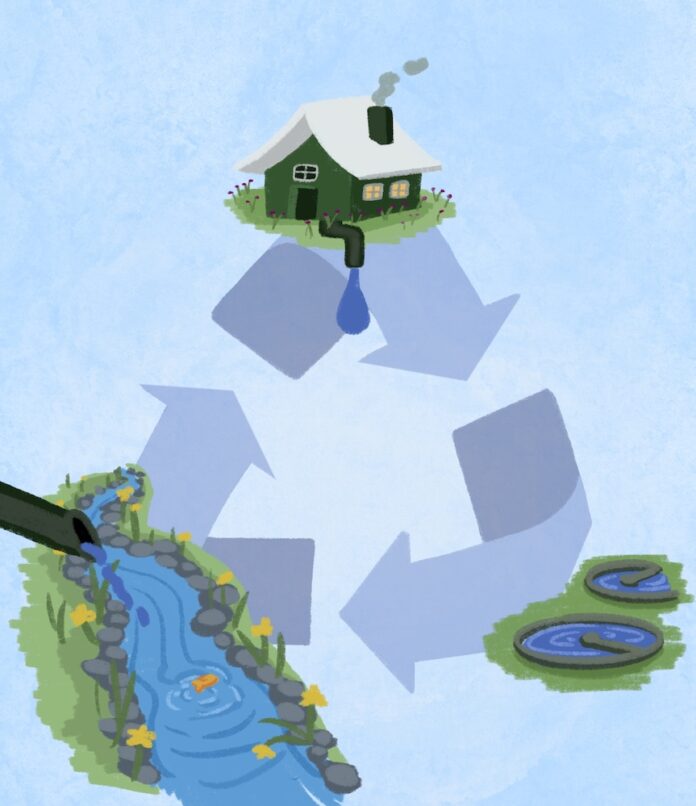Have you had a drink of water today? Chances are you have, or will, because water is a necessity to human life. Despite this fundamental role as one of the most vital survival priorities, we have historically used it incredibly unsustainably. Thankfully, LA is opening its eyes to the rapidly diminishing levels of freshwater sources. In 2019, LA’s Green New Deal was passed and established a goal to recycle 100 percent of the city’s wastewater by 2035. This is great, but it’s not enough. It is imperative that LA continues to develop and roll out water reclamation technology to preserve as much water as possible before it is trapped in undrinkable forms such as brine and saltwater.
I spent last year researching LA’s water infrastructure for my Urban & Environmental Policy (UEP) senior comprehensive project, and I have found that there is great potential in water reclamation. LA is an arid region prone to drought and it imports most of its water from both out of city and state. LA’s preliminary steps toward water self-sufficiency show that action must be taken quickly to keep the city from disaster. We need to take the goal established in LA’s Green New Deal one step further, and implement reverse osmosis treatments and disinfection via ultraviolet light in order to make all recycled water potable.
As a global leader in water reclamation, LA’s state-of-the-art water recycling facilities have the potential to revolutionize LA’s water infrastructure by creating a self-hydrated city. This is an opportunity to create a sustaining legacy and to position LA at the forefront of water conservation efforts. The development of this technology would be a highly informed investment. Sooner or later, reliance on groundwater sources will no longer be feasible as they dry up. LA will have no other option but to turn to water conservation strategies such as stormwater capture, desalination and water reclamation. Of the three, water reclamation is the least energy-intensive and the most reliable. Although there will be costs associated with implementing this final advanced level of water treatment, it will ultimately be more economical to develop this infrastructure before it’s too late.
In a world void of clean drinking water, it is the corporations and 1 percent who will benefit. Bottled water companies already profit off of selling the same water to consumers as municipal services and predicate sales based on misinformation and government mistrust. As water sources deplete even more, they will not think twice before taking advantage of folks who are suffering to get access to clean water.
This will not only be an inconvenience, but a public health catastrophe — a lack of access to clean water means a lack of basic hygiene and an increase in disease. If we have learned anything from the pandemic in the past two years, it is that our public infrastructure is not strong enough to support another pandemic.
Young people are calling for more and stronger climate action across the globe, and it’s time for our elected officials to listen. It’s also time for our generation to step up, and right the wrongs of previous efforts to champion water reclamation for potable use. Past communication campaigns attempted to educate the public on water reclamation by branding the technology as “toilet to tap,” which unfortunately evoked disgust from the general public. This campaign failed to portray the extensive purification processes that treat water to a higher standard than what comes out of most faucets or is found in most bottled water. It is our responsibility as voters to educate ourselves on solutions as obvious as water reclamation, develop advanced media competency habits in order to filter out opinion from science and above all else — conserve more water.
A world in which our cities are self-hydrated is within reach. Rather than piping in water from thousands of miles away or sucking up the last of our freshwater sources, we can keep water within our communities. In this world, people are healthy, happier and have access to food and water. Cities treat and recycle their municipal water to a potable level, and information on water sanitation is accessible and well communicated. Water access is recognized as a human right, and we no longer allow it to be corporatized. Reparations are provided to communities that have been stripped of natural water resources, and biological efforts are put into restoring and rebuilding ecosystems. This world is possible, yet every day without concrete action funding potable water treatment is another day of our remaining freshwater sources being depleted. After completing my senior comps research on water reclamation, I’ve learned that it is imperative to not only stand up for the future of water usage, but to join the ranks of those fighting to keep LA a livable city. We must come together to undo the damage that we created before it’s too late.
![]()































